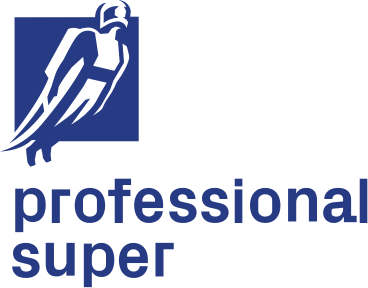Career advice I wish I had in my 20s
5 min read
Leaving the safety net of school or university and transitioning into the world of professional work can be daunting. Fortunately, here at Professional Super we have used our collective wisdom and years of experience to share a list of the best career advice we wish we were given in our 20s!
Gone are the days where employees stay in the one job at the same company for 15 to 20 years. Career change statistics reveal the average person will change careers 5-7 times during their working life. Working in a traditional job structure for more than two to three years will be a rarity. In fact, approximately 30% of the total workforce will now change jobs every 12 months.
Millennials will make up the majority of the workforce by 2025. They are described as being more aggressive in pursuing career progression and far more mobile. In most cases, this means that millennials could obtain higher salary increases and better job titles than they would if they moved vertically within a company.
Previously, chopping and changing between jobs was frowned upon. However, employers are starting to realise the value that having a wide range of experiences and skills can bring. At the end of the day, having a variety of jobs in various industries under your belt will not only help you figure out what you're good at, and what you like but can also be an attractive trait for employers.
You were hired for a specific role. While it’s good to take initiative and try to go above and beyond, it’s important to really nail the tasks you were employed to do. Be successful and recognised at doing your job well, before you seek extra responsibilities.
Success starts with performing your job well, day in and day out. Your career will be built over people’s perceptions that you can take on new challenges and drive positive outcomes. But these perceptions will come from your reliability, results, quality of work and your ability to learn and adapt.
You always hear that success doesn’t happen overnight, because it’s true. Not everything you do will be noticed, and you won’t get a gold star every time you do something well. However, being consistently good at what you do over an extended period of time will be valued. If not by your current boss, then by a prospective new employer.
It's easy to think you’re invincible when you’re young. However, living on a diet of caffeine and 12-hour work days is unsustainable and will eventually affect the quality of what you do. While making money is an essential part of life, it is equally important to look after your health.
Ironically, we trade our time for money, often hoping to earn enough money so that we can make the most of our time. However, working too much can rob us of time, and being overly stressed can affect our health.
Eating healthy food, exercising and getting enough sleep will make you perform better at everything, including your work. So, it’s important to remember that while work provides you the freedom to enjoy your time, your health is equally important.
This is a lesson everyone should master early. When you are starting out, building strong connections can become one of your greatest assets in your life and your career.
When people like you, they will want to work with you. And the more people that want to work with you the more opportunities will come your way. You never know who you could end up working with, so try to make sure you have a great reputation amongst everyone.
It’s also important to get to know people outside your usual circles. Don’t limit your network to your age group, business unit or company.
Once you’ve started to master your role, seek opportunities for personal and professional growth. You are ultimately in charge of your own career progression, learning and development, so it’s up to you to be the driving force.
Put your hand up for new opportunities if you think they’ll provide valuable lessons and experience that’ll benefit your career. Showing initiative in your areas of interest will give you the opportunity to work on things you enjoy. It may also show your boss you’re ready for new challenges.
While mistakes are unavoidable, they’re also the biggest opportunities for growth. If you can learn from the mistakes of others, then even better. Listen to how others around you overcame their hurdles so you don’t encounter the same on your own.
One of the best ways to succeed is through continuous learning about the business and wider industry. You can do this by listening to podcasts, watching YouTube or even reading the news. Not only will you gain valuable knowledge, but it can spark new areas of interest you may not have considered.
Mentoring is a widely used development tool that has proved to have a beneficial impact on effectiveness, confidence, and career advancement.
One of the great things about having a mentor is learning from their experience and expertise. You can benefit from their guidance and advice. Great mentors can inspire and motivate you and help you understand the bigger picture.
Mentors can come from your network, previous employers, anyone successful that you know and respect, or from a formal program within your organisation. If you’re not sure the best way to find one, ask your managers and senior leaders, or any colleagues you know that have one.
Considering we spend so much of our life at work, it is important to enjoy as much as you can. Some of the friends you make at work may be amongst the most meaningful connections you will have.
Apart from the social benefits of having friends at work, studies prove that it also improves productivity, emotional wellbeing, higher job satisfaction, and less workplace stress. We all know that there will be hard days, so there is comfort in knowing there are people we can turn to for support and to cheer us on when needed.
At the end of the day, you want to look back on your career and know you did something that you’re proud of.
This is not an exhaustive list, and you will learn your own pieces of advice along the way. But hopefully this is a helpful start. Good luck!


Start saving for your first home today with Professional Super!
See our Fees & discounts page or PDS for details



